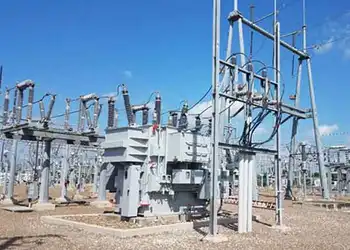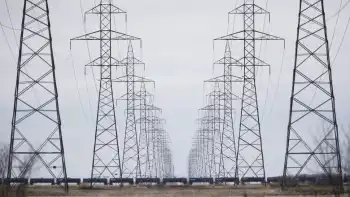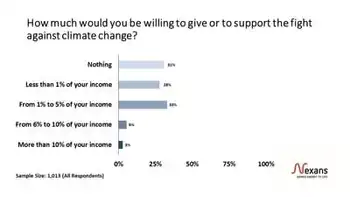CEA Chair Recommends Initiatives for NA Electricity Trade
WASHINGTON -- - David Mann, CEO of Emera Inc. and Chairman of the Canadian Electricity Association (CEA) called for changes to the Canada-U.S. electricity relationship in order to improve regional markets to the benefit of consumers in both countries. His comments were made at the Canadian Embassy Energy Conference in Washington, DC.
Mr. Mann noted that "increased integration of the U.S./Canadian marketplace will help to reduce the uncertainty in North American energy markets through greater efficiency, increased energy security, more predictable regulation and policy, lower costs, and better environmental benefits."
He suggested that while the world is focusing its attention on the Middle East, "Americans should note that the single most significant energy trading relationship in the world is between Canada and the United States."
Mr. Mann characterized the trading relationship as amounting to over 1.6 billion CDN$ daily with energy constituting approximately 15% of that trade. Canada is America's largest supplier of energy, accounting for 94% of natural gas imports, nearly 100% of electricity imports, and more crude and refined oil products than any other foreign supplier.
"The North American electricity industry - traditionally perceived as a model of stability in both Canada and the United States - is in a state of uncertainty unlike anything it has experienced in its over 100 years of existence," stated Mr. Mann. "To provide for a secure energy future, we must address the problems that have resulted in this uncertainty in our industry."
CEA has made a number of recommendations it believes will contribute to greater investor confidence and reduced uncertainty in the marketplace. Mr. Mann reviewed some of those recommendations:
1.) We must explore avenues for increased participation in Regional Transmission Organizations (RTOs) and increased harmonization of market rules. CEA applauds efforts by FERC and Congress to efficiency in wholesale electricity markets.
2.) CEA recommends the development of a North American strategy to manage Greenhouse Gas emissions. A North American approach to climate change allows for the recognition of the unique characteristics of North American energy production.
3.) Opportunities should be identified to further harmonize strategies to manage the cross-border impacts of NOx, SOx, mercury and particulate matter air emissions.
4.) The application of a North American-wide technology neutral approach to measure environmental performance for electricity systems should be pursued.
5.) We should explore measures to enhance cross-border transmission transfer capability, such as opportunities to streamline the transmission siting process.
6.) Further coordination of existing efforts on critical infrastructure protection would serve as an effective model for protecting the energy industry's critical assets.
7.) Finally, CEA supports legislative recognition of NERC's role as the self-governing international organization for developing and enforcing mandatory reliability standards for the evolving North American electricity industry.
Mr. Mann expressed confidence that the current energy trading relationship between the United States and Canada contains the framework for achieving these objectives. "By addressing the seven points we have identified, and similar suggestions from other sectors, we can anticipate and avoid barriers to cross-border trade, we can identify opportunities for greater cooperation and coordination in our respective energy markets, and we can maximize the opportunities offered by an extraordinarily successful bilateral relationship to help secure a healthy energy future for energy customers across North America."
Related News

New EPA power plant rules will put carbon capture to the test
WASHINGTON - New public and private funding and expected strong federal power plant emissions reduction standards have accelerated electricity sector investments in carbon capture, utilization and storage,’ or CCUS, projects but some worry it is good money thrown after bad.
CCUS separates carbon from a fossil fuel-burning power plant’s exhaust for geologic storage or use in industrial and other applications, according to the Department of Energy. Fossil fuel industry giants like Calpine and Chevron are looking to take advantage of new federal tax credits and grant funding for CCUS to manage potentially high costs in meeting power plant performance requirements, including…




